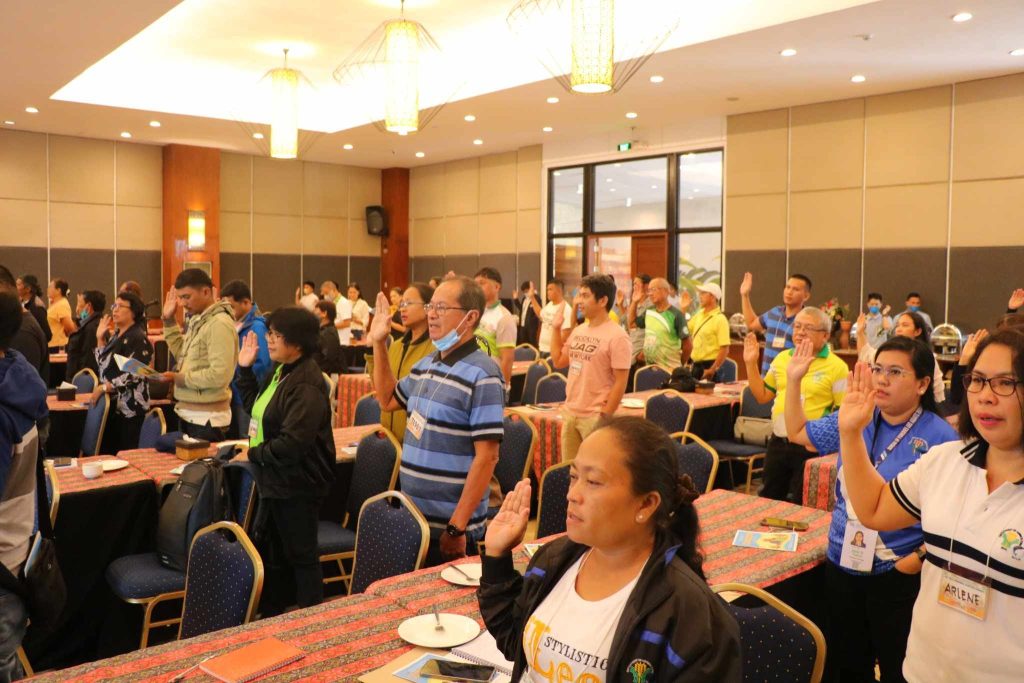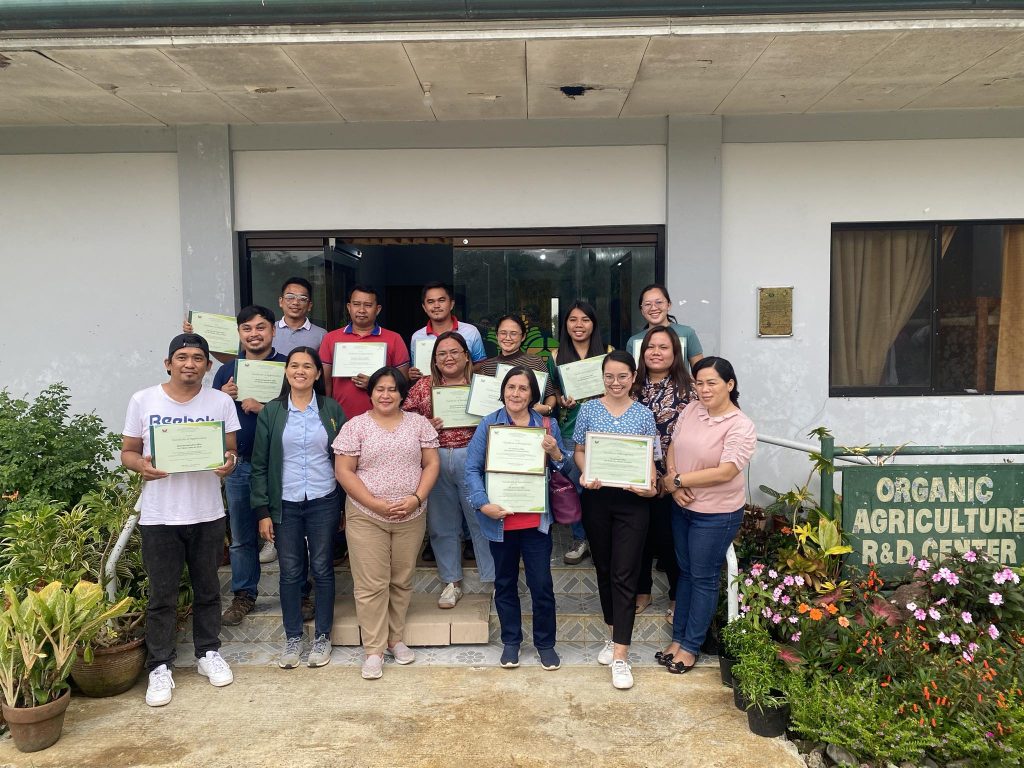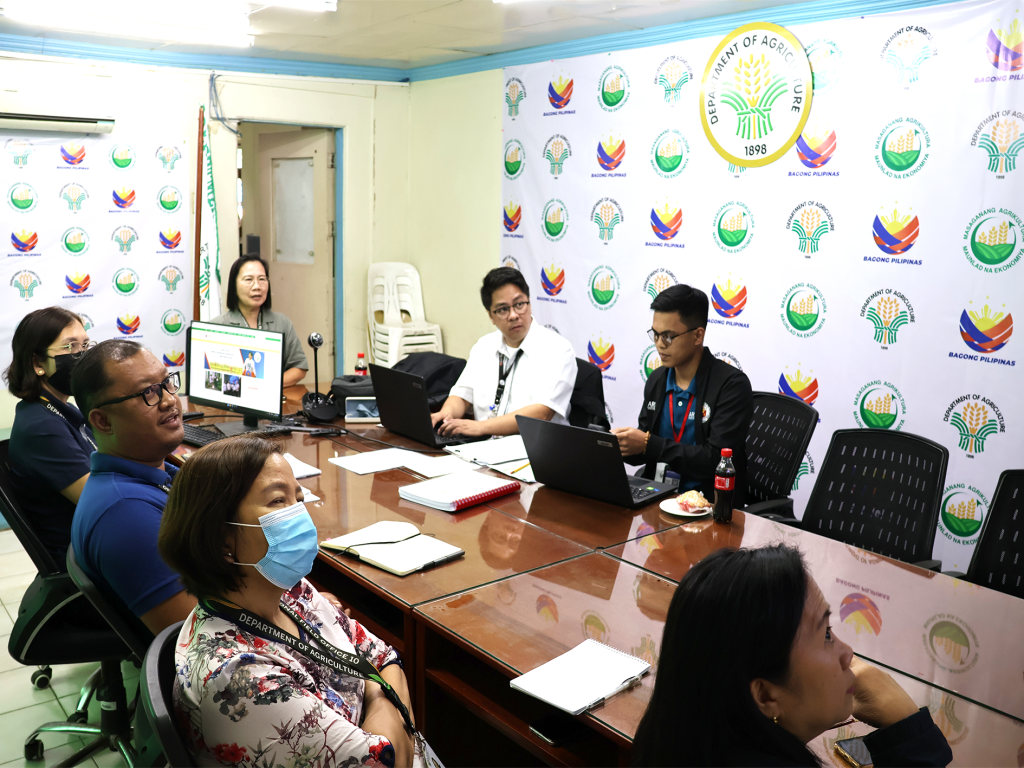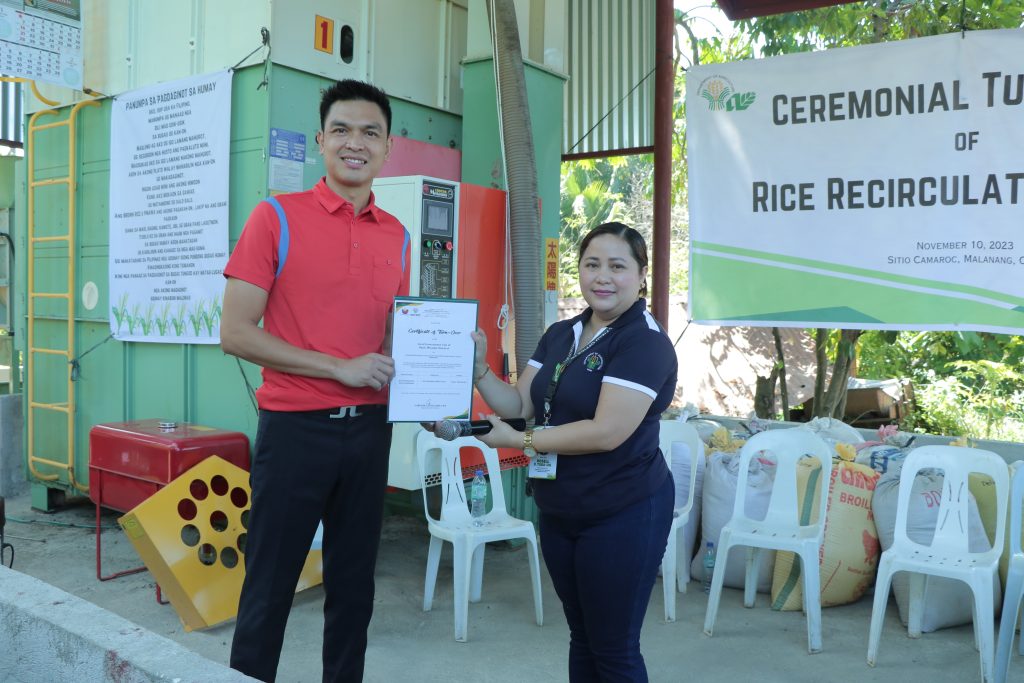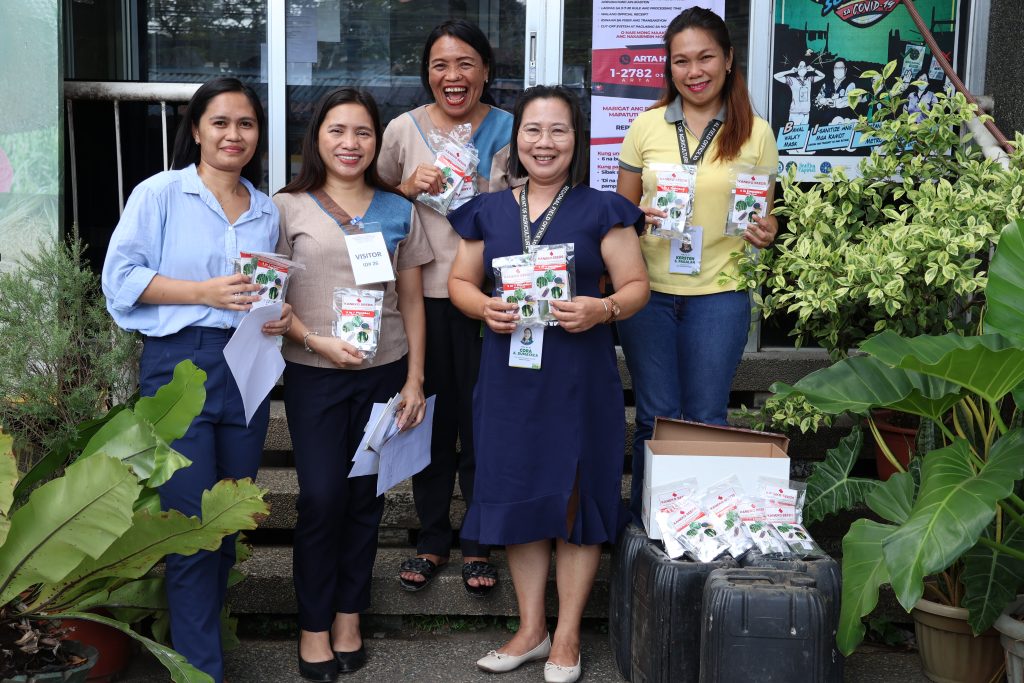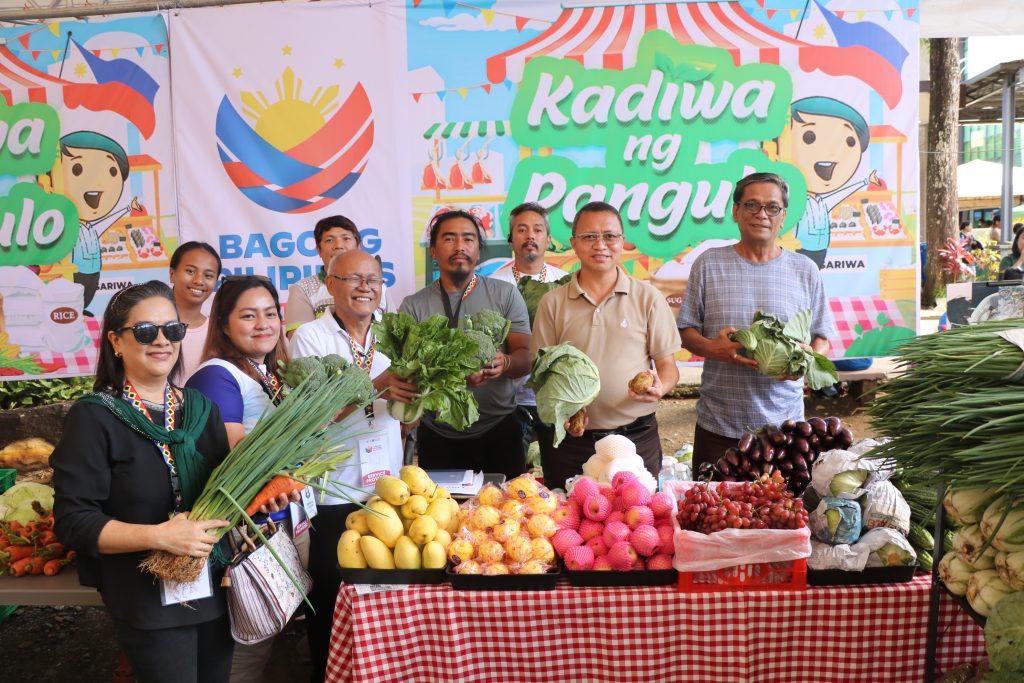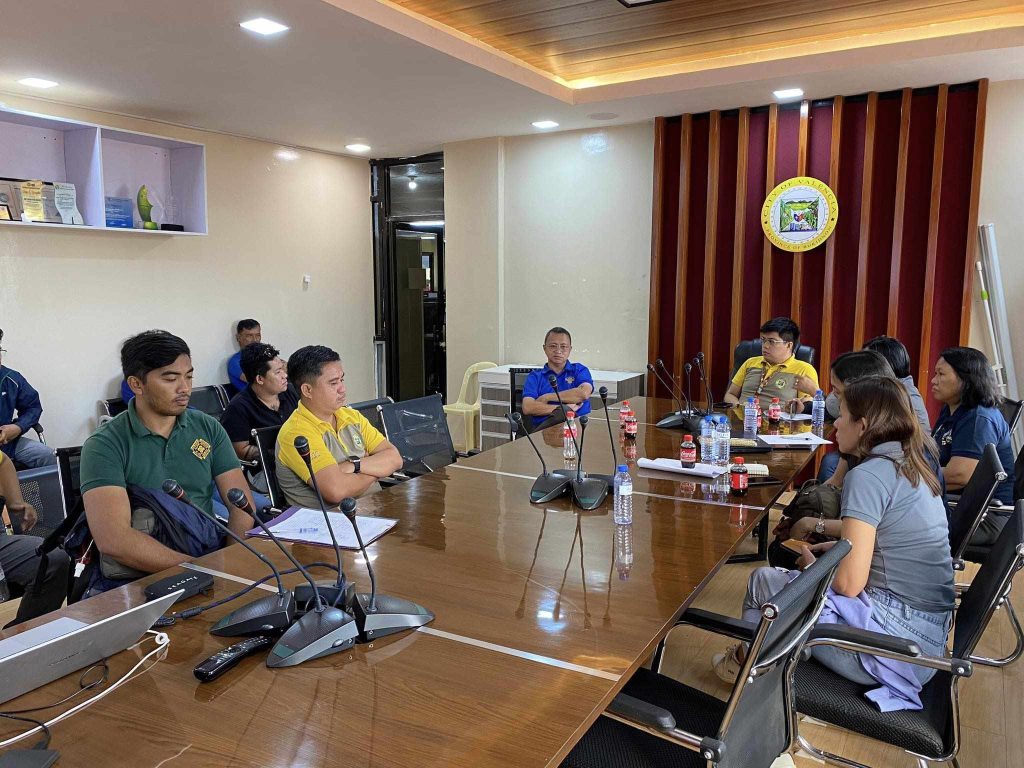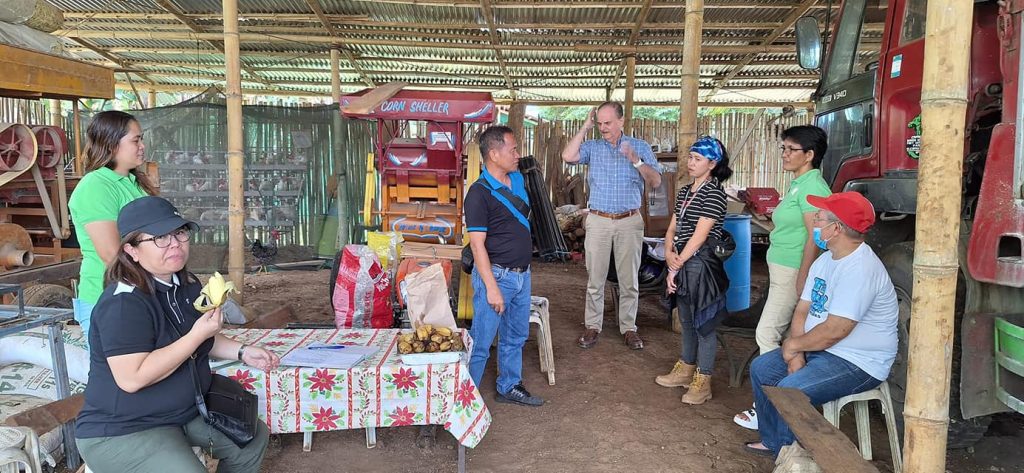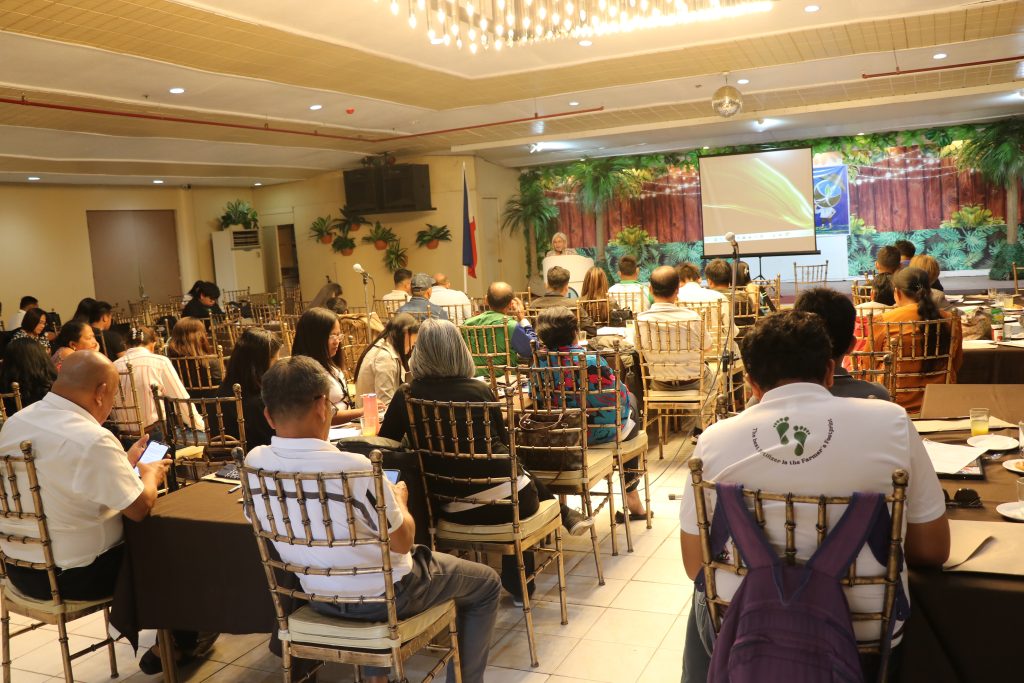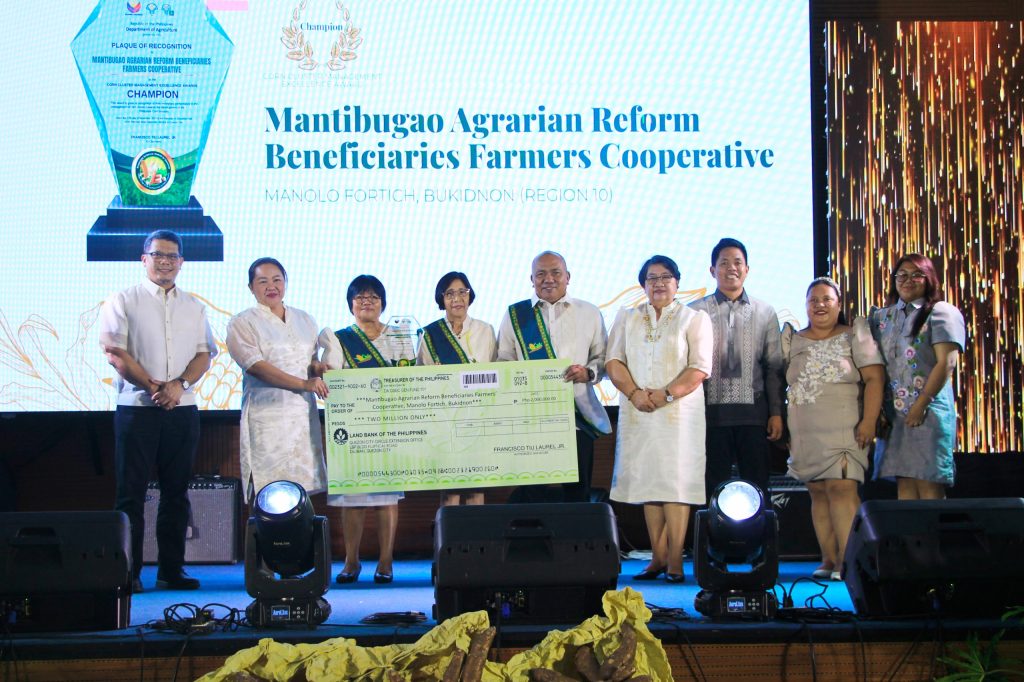
MARBFC has over the years provided services in terms of agricultural loans and custom services of pre- and post-harvest machineries and equipment. These have helped farmers sustain their farming activities and importantly, ensure economic resilience by commanding fair prices for their corn harvest.
QUEZON CITY – Two of the assisted farmers’ cooperatives, associations (FCAs) of the Department of Agriculture – Northern Mindanao (DA-10) were honored after being adjudged as the champions in the 2023 Corn and Cassava Cluster Management Excellence Awards on November 17, at the Salvador H. Escudero Hall, National Meat Inspection Service, Visayas Avenue, Diliman here.
Both from Manolo Fortich, Bukidnon, the Mantibugao Agrarian Reform Beneficiaries Farmers’ Cooperative (MARBFC) and Bliss Lingion Multi-Purpose Cooperative (BLMPC) won the corn and cassava accolades, respectively for being DA’s partners in the production of safe and quality corn and cassava, promotion of value chain approach, development of the corn and cassava industries, as well as the provision of various services by the cluster organizations to their members.
During the awarding ceremony, reading the message on behalf of Senator Cynthia A. Villar, Senate Committee on Agriculture, Food and Agrarian Reform, U-Nichols A. Manalo, national corn coordinator and OIC-Director of DA-Field Operations Service relayed how innovation, convergent efforts, and the adoption of farm clustering approach play a pivotal role in advancing the corn and cassava sectors.
“We come together to celebrate the synergy between innovation, dedication, and collaboration among groups, individuals, and agencies,” she expressed.
The senator is also a staunch ally in farm clustering saying that it increases production and ensures a sustainable supply of safe and high-quality agricultural products, and provides an enabling environment for farmers to become more productive, innovative and competitive.
“You have not only met the challenges and expectations posed by the ever-evolving agricultural landscape, but you have surpassed expectations. It resonates in the lives of rural communities and in the sustenance of our nation.” Sen. Villar said, as she lauds the feats of farm clusters, even citing them as the drivers of economic growth and social development.
In her acceptance speech, MARBFC manager Evangeline P. Frasco is grateful that their FCA’s hard work was recognized and rewarded.
“Thank you, DA for the cash award where we can expand our inputs provision to our corn farmers where more funds means more farms to be assisted, and an increase in the volume of production to satisfy our markets,” Frasco said.
On the other hand, Dante M. Dosayco, BLMPC chairperson remarked: “This is a token for our past efforts and also a push for our future endeavors. We assure you (DA) that our future deeds will only just get better.”
For bagging the coveted top spots in said awards, both Manolo farm cluster organizations received P2 million for the purchase of farm inputs, farm equipment and machinery, and postharvest facilities that would help them boost their farming operations, livelihood and income.
Trailing MARBFC for the corn excellence awards are first and second runners-up: Samahang Gumagawa Tungong Tagumpay MPC of Occidental Mindoro and Maningalao-Lingayao Agriculture Cooperative of Agusan del Norte, respectively. Following BLMPC in the cassava awards are first and second runners-up: Zamboanga del Norte Cassava Growers and Processors, Inc. of Zamboanga del Norte and Villa Luna MPC of Isabela, respectively.
“Rest assured that I will continue to pursue legislative mechanisms and policies that will solidify the linkage of production and market access across the rich and diverse commodities in our country,” Sen. Villar’s commitment, as she caps off her message.
Besides the honored farming clusters, the different technical working groups for the corn and cassava clusters at the national and regional levels were also recognized and presented with certificates.
Supporting the winners from the DA-10 delegation is headed by Regional Executive Director Carlene C. Collado, together with Regional Technical Director for Operations Carlota S. Madriaga, Corn focal person Richan D. Lacanaria, and Science Research Specialist II Mischelle F. Egama, who is also the former Cassava focal person, DA-Agricultural Training Institute (ATI) – Regional Training Center Ma. Lydia Echavez, and the municipal agriculturist of Manolo Fortich, Gemma G. Cania.
Other national agri officials were also in attendance, including Engr. Remelyn R. Recoter, DA-ATI director and the newly installed Engr. Roger V. Navarro, officer-in-charge for the Office of the Undersecretary for Operations.# (JLO/Photos by: AFID)
